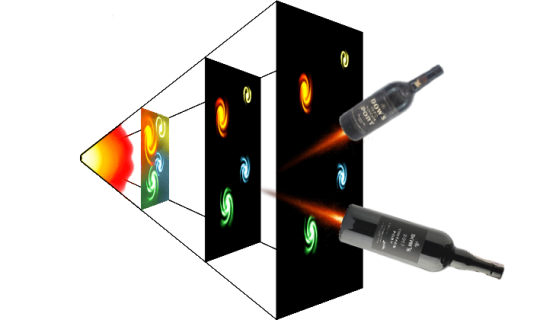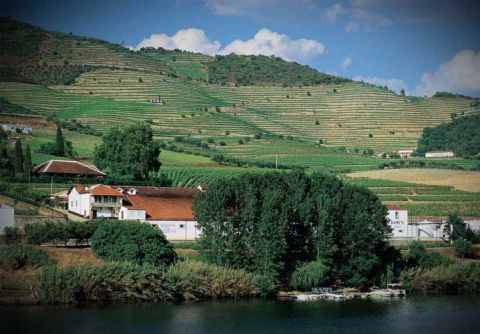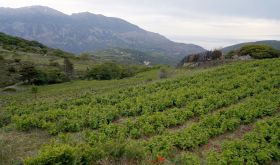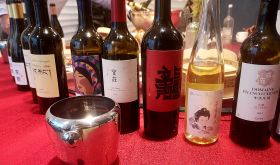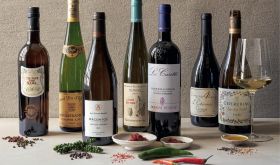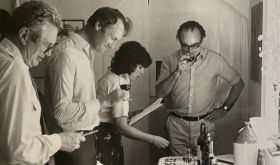1970 from £98, $220, HK$1,807, €220, 2,375 Danish kroner, 690 Swiss francs
2017 from £55, $69.98, €85, 3,000 Taiwan dollars, CA$129, HK$955, NZ$249, AU$334.99, 2,189.85 Brazilian reais
Find Dow's 1970
Find Dow's 2017
The universe is 14 billion years old. Dow's 1970 port is 53 years old. Both perfectly demonstrate the second law of thermodynamics: that the complexity of everything in existence can only increase until the point at which it's suddenly all over. (The graphic above depicts the expansion of the universe following the big bang.)
Thankfully, the end doesn't seem imminent for Dow's 1970 vintage port. (For the universe, I'm not so sure.) When I tasted it last year, I gave it 20/20 and noted its apparent indestructibility. In its fifth decade of existence, the colour has become limpid garnet, while its purity and completeness of flavour is absolutely stunning. Any further description of those flavours is redundant beyond stating that they are utterly captivating, the sort of wine to silence the room. Tasting venerable old wine such as this is as much an emotional experience as it is sensorial, bringing not just a transmission of place but a distillation of all the time passed since the grapes ripened in a very different Douro Valley back in 1970. The ability to drink that same wine today is the first miracle.
How much should a fully mature bottle of wine from a top-ranked producer in an outstanding vintage cost? For a bottle of red bordeaux and burgundy, it is comfortably measured in the tens of thousands. For a bottle of Dow's 1970 port, the market doesn't seem to know, with a sixfold difference between the lowest and highest prices quoted above. But even the highest price is surely dramatically undervalued in comparison with other categories. No other wine in the universe comes close for quality/price ratio; you can buy this fully mature wine for less than £100 in London. That's the second miracle.
Inevitably, the distribution of old vintage port is scattered, and single bottles of Dow's 1970 are listed by retailers around the world, with the UK's long history of port-trading meaning that there's plenty available in the British secondary market. It's also available across Europe and in the US. Wherever you are it would be the crowning glory for any seasonal gathering. Especially one that you want to silence.
With any old wine, there is a risk of bottle variation, of course – in 2020 Tim experienced an under-par bottle – so for the risk-averse, there is an easy solution: buying the 2017 vintage of the same wine. When Julia tasted this on its release in 2019, she awarded it 18 points and gave a drinking window of 40 years from vintage. Now six years old, this will still be a fearsome fruit bomb underwritten by powerful sweetness, its entropy as limited as that of the nascent universe but ready to expand exponentially, thanks once again to the second law of thermodynamics.
For those that want more technical persuasion, Dow's website reveals how Dow's vintage port is made. The fruit comes from vineyards at Quinta do Bomfim (pictured above) and Quinta de Senhora da Ribeira. A slightly longer fermentation than is common elsewhere results in slightly less residual sugar, while the high percentage of Touriga Franca and Touriga Nacional is alleged to give powerful structure. The wine is aged in cask for 18 months, as per the standard for vintage port, and bottled without fining or filtering – so decanting will be necessary, whichever the vintage. (Paul Symington advises regarding the 2017, 'It will not need decanting as yet, but it might be wise to pour it into a decanter if only to aerate the wine and bring out its amazing rainbow of aromas and flavours.')
Port, with its high alcohol, marked sweetness and relative rarity of consumption, looks sadly unlikely at present to reclaim the mass appeal it enjoyed in decades past. As wine lovers, we are the universe's custodians of port. It should be both a duty and a pleasure to support this most noble of drinks, and to keep it going for the next 14 billion years.
Our tasting notes database has over 1,800 reviews of ports of all ages and styles.

